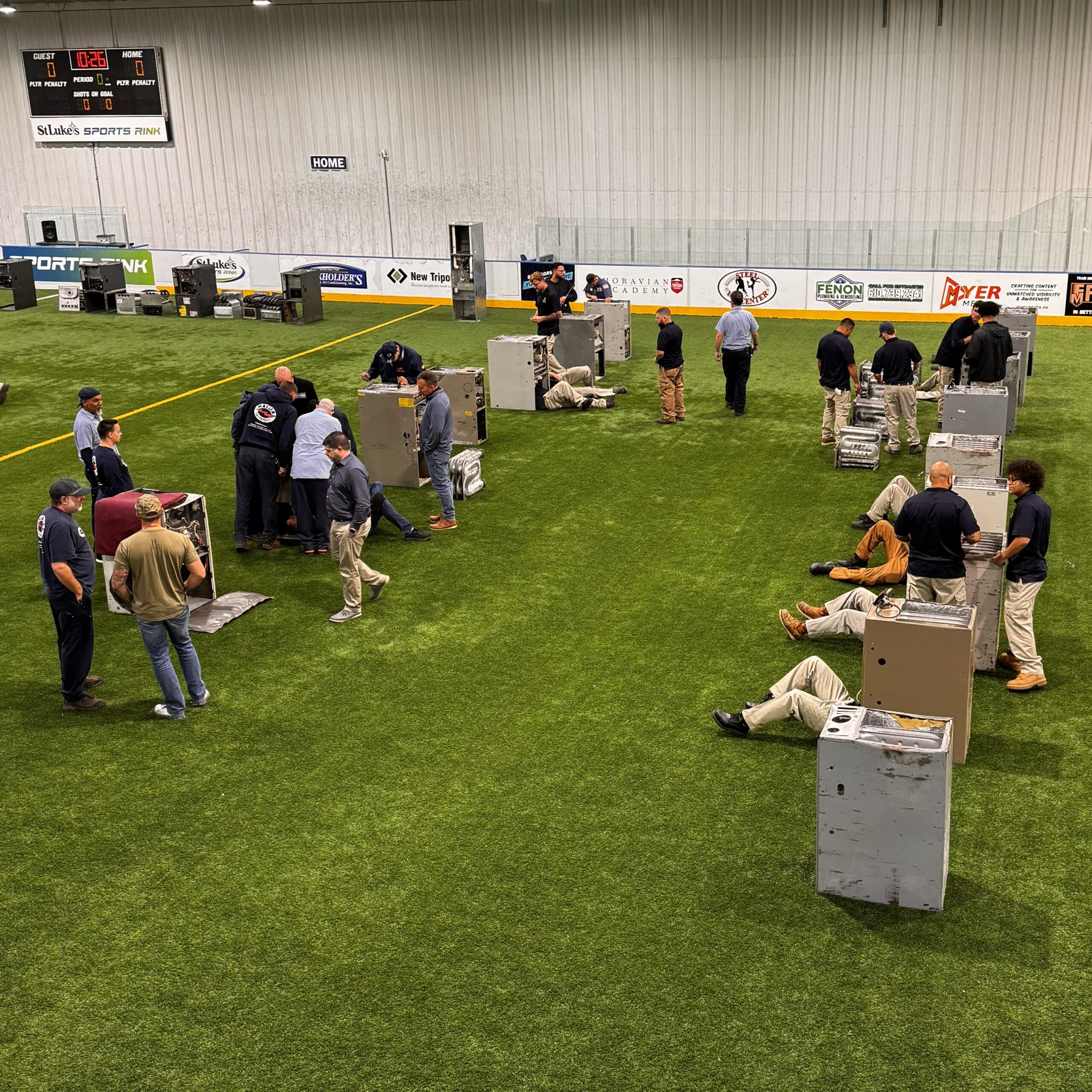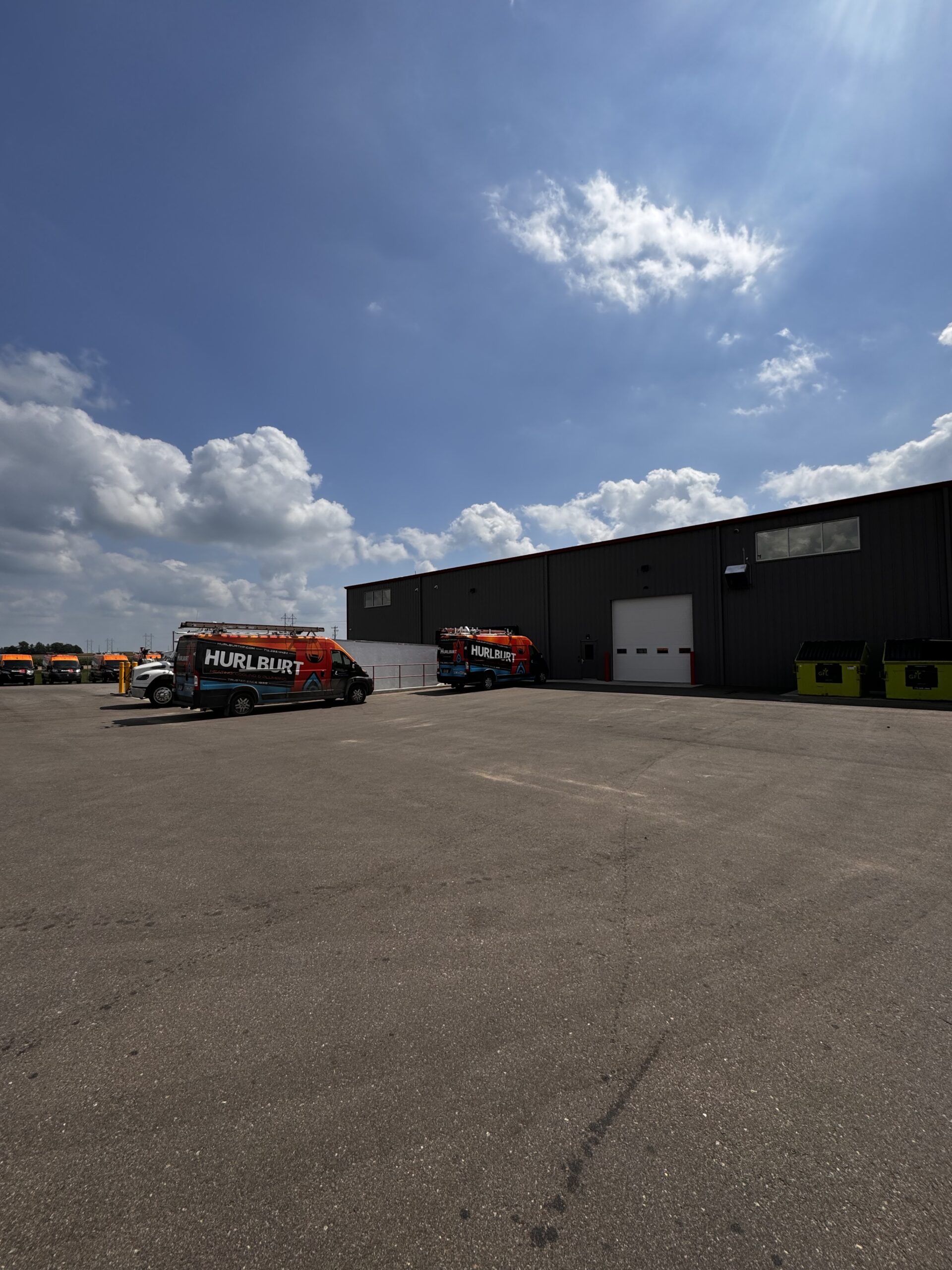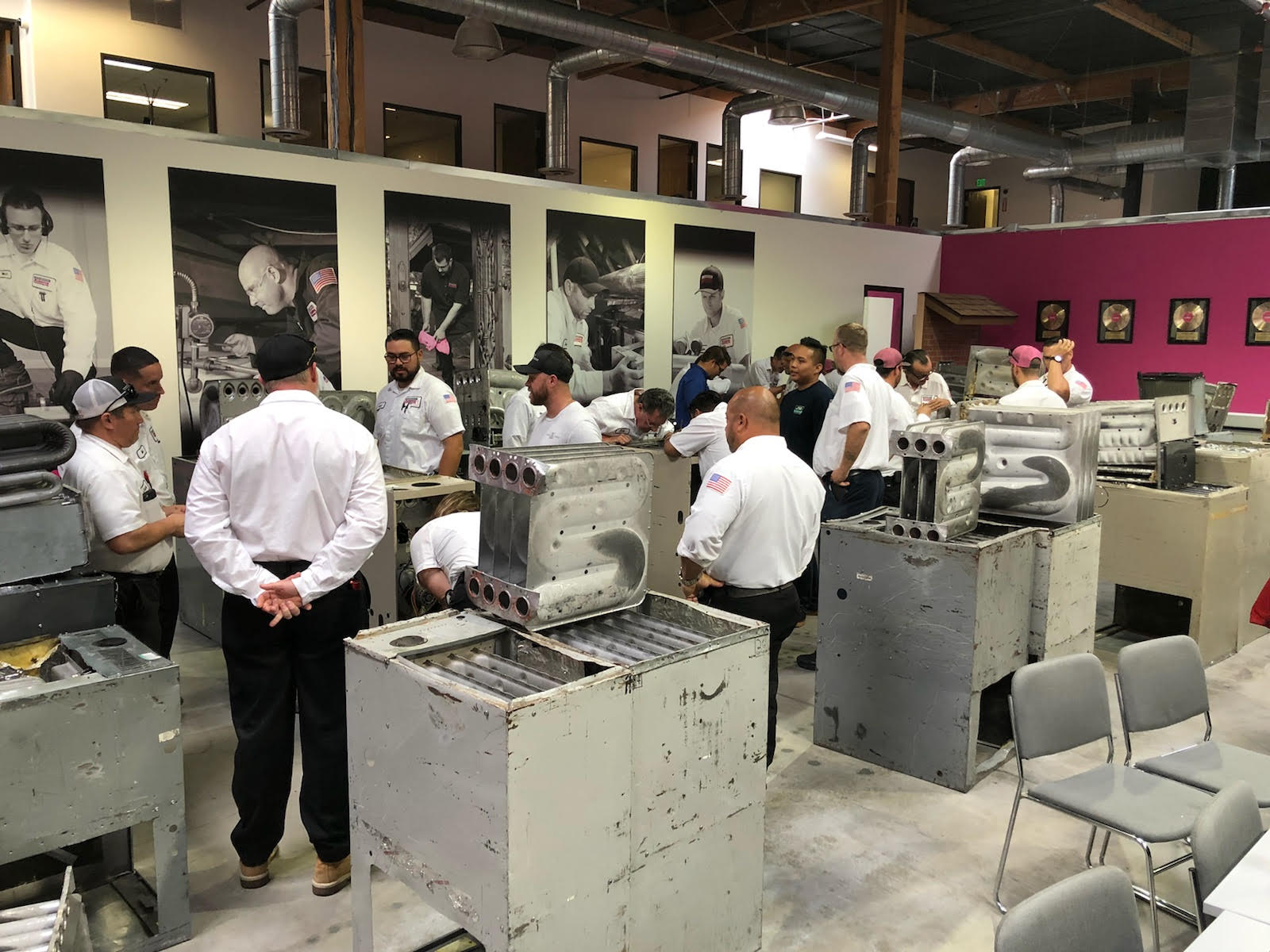What Makes Heat Exchanger Inspection Training So Valuable for Technicians?
In the HVAC industry, staying competitive means more than knowing how to install a furnace or replace a compressor—it’s about safeguarding your clients, improving system efficiency, and offering expertise that others can’t. That’s exactly what heat exchanger inspection training delivers.
Technicians who invest in this training are equipped with the hands-on skills and technical knowledge needed to identify subtle but dangerous issues that can lead to carbon monoxide leaks, combustion hazards, and costly system failure. For anyone serious about advancing in the field of HVAC, this training is no longer optional—it’s essential.
1. Preventing Carbon Monoxide Leaks: A Life-Saving Skill
The most immediate danger posed by a cracked heat exchanger is a carbon monoxide (CO) leak. Because CO is odorless and colorless, even a minor flue crack or combustion chamber breach can go unnoticed—until it’s too late.
Heat exchanger inspection training teaches HVAC professionals how to:
- Detect hairline cracks invisible to the naked eye
- Recognize signs like soot, discoloration, or abnormal flame patterns
- Use tools such as borescopes, combustion analyzers, and CO sensors
- Understand how cracks can result from thermal stress, airflow restriction, or excessive pressure drop
This specialized training helps prevent hazardous leaks, protecting both clients and your company from liability.
2. Improving HVAC System Efficiency
Beyond safety, a damaged or fouled heat exchanger severely reduces heat transfer efficiency, forcing the entire HVAC system to work harder. This impacts:
- Fuel consumption and energy costs
- Air conditioning and heating performance
- System lifespan and maintenance frequency
With proper training, technicians can identify performance-robbing issues like corrosion, scaling, buildup, or blocked air filters that interfere with fluid dynamics, convection, or latent heat exchange. Fixing these issues early can restore optimal function to the duct, heat pipe, or plate heat exchanger, resulting in lower energy bills for the customer and improved thermal efficiency.
3. Elevating Technician Credibility and Career Growth
Clients trust professionals who can clearly explain why a crack in the furnace is a serious issue. Through inspection training, technicians learn how to:
- Present findings using technical yet approachable language
- Reference tools and results with confidence
- Show evidence of problems using images, test results, or microchannel inspection
This transparency builds customer trust and supports ethical sales of new equipment when warranted. It also:
- Reduces callbacks and costly rework
- Improves job performance and lowers liability risk
- Strengthens your reputation as a reliable HVAC technician
Certification from Heat Exchanger Experts is also a powerful resume booster that demonstrates your commitment to safety, system design, and best practices backed by industry standards such as those from the American Society of Mechanical Engineers.
4. Competitive Advantage in a Crowded Industry
With demand for HVAC services increasing—especially in winter months and in homes relying on central heating, heat pumps, or condensing boilers—the ability to expertly inspect and diagnose heat exchanger cracks sets you apart from other technicians.
Benefits include:
- Higher earning potential
- Increased demand for your services
- Opportunities for advancement or leadership roles
- Differentiation for your HVAC business
Certification also supports technicians seeking licensure, better insurance coverage, and specialization in environmentally friendly system retrofits or waste heat recovery units.
Take the Next Step with Heat Exchanger Experts
At Heat Exchanger Experts, we offer an intensive, one-day HVAC training program designed to make you a more skilled, safer, and more successful technician. With over 70 real residential heat exchanger types to study—including tubular, clamshell, and serpentine models—you’ll gain experience no classroom-only course can match.
Our training helps you:
- Master advanced diagnostic tools
- Learn to spot early-stage cracks, fouling, and blockages
- Communicate findings to clients with confidence
- Reduce liability and increase service quality
- Gain long-term knowledge applicable across furnaces, boilers, chillers, and more
Each participant receives Ellis Prach’s industry-recognized inspection manual—a comprehensive field guide rich in technical illustrations and proven inspection strategies.
Explore Upcoming Training Seminars and invest in a course that pays for itself—often after just one successful heat exchanger diagnosis.
FAQ: Heat Exchanger Inspection Training
Q – How often are Heat Exchanger Experts seminars offered?
A – National classes run from August through November, with local open classes in Colorado throughout the year. Private classes can be scheduled for companies anytime—booking begins in January and fills up by March.
Q – What is the cost of attending a seminar?
A – Seminar fees typically range from $700–$1200 per person, depending on class type and location. Private classes have a minimum charge equivalent to 25 participants.
Q – Can I host a private seminar for my company?
A – Yes! You can host a class exclusively for your technicians, regardless of company size. Many smaller businesses choose to pay the minimum or partner with nearby companies to split costs.
Q – Why is this training considered so valuable?
A – The skills learned help prevent carbon monoxide exposure, reduce liability, increase efficiency, and generate higher profits for your business. Most attendees report recouping the training cost within weeks.
Q – I lost my certification card—can I get a new one?
A – Absolutely. You can order a replacement via our Online Store if it’s been less than three years since you completed the course. After three years, you’ll need to re-certify by attending another seminar.





